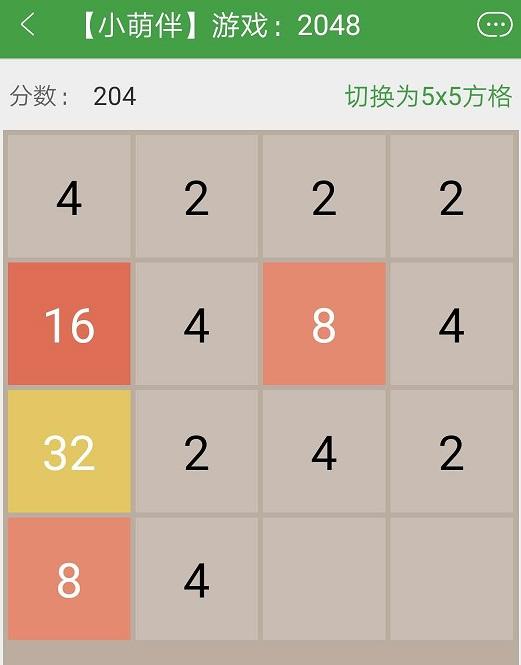前几篇都是介绍一些辅助功能,如新闻、H5游戏、段子趣图、原生小游戏,手电筒应用等,现在再来聊聊机器人陪聊主体功能--语音功能及其实现。
【小萌伴】中的语音功能使用的是百度语音sdk,包含语音输入、语音播放、语音转文字、文字转语音、声音变换、离线语音语义识别、语音唤醒等。
其中功能的主要可分为三部分:语音识别、语音合成、语音唤醒。(我用的sdk比较老了,下面代码也许已经不兼容新sdk,具体请参考 百度语音 官网)
ChatActivity实现了RecognitionListener及SpeechSynthesizerListener接口,这两个接口是语音识别与合成的监听。
初始化
语音识别和语音合成需要在进入Activity后执行初始化,在销毁时进行销毁。初始化如下,语音识别初始化没有封装,语音合成则用TtsUtils封装了一下。 mSpeechRecognizer = SpeechRecognizer.createSpeechRecognizer(ChatActivity.this, new ComponentName(ChatActivity.this, VoiceRecognitionService.class));
// 注册监听器
mSpeechRecognizer.setRecognitionListener(ChatActivity.this);
mSpeechSynthesizer = TtsUtils.getSpeechSynthesizer(ChatActivity.this, ChatActivity.this, getVoice(mRobot));
语音输入及识别
对这一块,通过BdVoiceUtil类进行了封装,通过调用如下方法即可开启语音识别:
BdVoiceUtil.startASR(mSpeechRecognizer, mSpeechSynthesizer, true);
在RecognitionListener的回调中获取语音识别的结果,包括实时(部分)转换及全量(整句话)转换为文字,在onResults或者onPartialResults中将转换的文字发送到机器人api,之后逻辑与正常机器人陪聊一致。
语音合成
将机器人返回的语音转换为文字,这一块也在BdVoiceUtil进行了一下封装:
BdVoiceUtil.startTTS(mSpeechSynthesizer, msg.getContent());
通过以上代码即可以开始转换,将msg.getContent()转换为语音,可以通过SpeechSynthesizerListener监听转换是否成功,语音播放的进度等。
语音合成后,也可以通过setParam控制声音(0 (普通女声), 1 (普通男声), 2 (特别男声), 3 (情感男声), 4 (童声))等
mSpeechSynthesizer.setParam(SpeechSynthesizer.PARAM_SPEAKER, String.valueOf(getVoice(robot)));
语音唤醒
语音唤醒功能在这里没有用到,主要是在后续介绍的“找手机”功能用到;包括语音唤醒、通过语音识别达到唤醒的目的、与微信等的语音输入冲突问题等,这些留到后续介绍“找手机”时再说。
BdVoiceUtil
对语音相关的简单封装,其实还有TtsUtils等,总的代码太多,这里就不贴了...
public class BdVoiceUtil {
/**
* 开始识别(会先停止SpeechSynthesizer)
* @param speechRecognizer
* @param mSpeechSynthesizer
* @param bindParams 是否需要提示音
*/
public static void startASR(SpeechRecognizer speechRecognizer, SpeechSynthesizer mSpeechSynthesizer, boolean bindParams) {
stopTTS(mSpeechSynthesizer);
Intent intent = new Intent();
bindParams(intent, bindParams);
if(speechRecognizer != null) {
speechRecognizer.startListening(intent);
}
}
public static void stopASR(SpeechRecognizer speechRecognizer) {
// 说完了
if(speechRecognizer != null) {
speechRecognizer.stopListening();
}
}
public static void cancelASR(SpeechRecognizer speechRecognizer) {
// 取消
if(speechRecognizer != null) {
speechRecognizer.cancel();
}
}
public static void destroyASR(SpeechRecognizer speechRecognizer) {
cancelASR(speechRecognizer);
if(speechRecognizer != null) {
speechRecognizer.destroy();
}
}
public static void bindParams(Intent intent, boolean hintSound) {
if(hintSound) {
// 设置识别参数
intent.putExtra(TtsUtils.EXTRA_SOUND_START, R.raw.bdspeech_recognition_start);
intent.putExtra(TtsUtils.EXTRA_SOUND_END, R.raw.bdspeech_speech_end);
intent.putExtra(TtsUtils.EXTRA_SOUND_SUCCESS, R.raw.bdspeech_recognition_success);
intent.putExtra(TtsUtils.EXTRA_SOUND_ERROR, R.raw.bdspeech_recognition_error);
intent.putExtra(TtsUtils.EXTRA_SOUND_CANCEL, R.raw.bdspeech_recognition_cancel);
}
intent.putExtra("sample", 16000); // 离线仅支持16000采样率
intent.putExtra("language", "cmn-Hans-CN"); // 离线仅支持中文普通话
intent.putExtra("prop", 20000); // 输入
// 语音输入附加资源,value替换为资源文件实际路径
// 离线包过大,暂不考虑支持 intent.putExtra("lm-res-file-path", "/path/to/s_2_InputMethod");
}
public static EventManager initEventWakeUp(final Activity context) {
// 唤醒功能打开步骤
// 1) 创建唤醒事件管理器
EventManager mWpEventManager = EventManagerFactory.create(context, "wp");
// 2) 注册唤醒事件监听器
mWpEventManager.registerListener(new EventListener() {
@Override
public void onEvent(String name, String params, byte[] data, int offset, int length) {
try {
if(params == null) {
return;
}
JSONObject json = new JSONObject(params);
if ("wp.data".equals(name)) { // 每次唤醒成功, 将会回调name=wp.data的时间, 被激活的唤醒词在params的word字段
String word = json.getString("word"); // 唤醒词
WpEventManagerUtil.doEvent(context, word);
if(Logs.isDebug()) {
Logs.logI(BdVoiceUtil.class.getSimpleName(), "百度语音唤醒" + word);
}
} else if ("wp.exit".equals(name)) {
// 唤醒已经停止
}
} catch (JSONException e) {
throw new AndroidRuntimeException(e);
}
}
});
return mWpEventManager;
}
public static EventManager eventWakeUp(final Activity context, EventManager mWpEventManager) {
if(mWpEventManager == null) {
mWpEventManager = initEventWakeUp(context);
}
// 3) 通知唤醒管理器, 启动唤醒功能
HashMap params = new HashMap();
params.put("kws-file", "assets:///WakeUp.bin"); // 设置唤醒资源, 唤醒资源请到 http://yuyin.baidu.com/wake#m4 来评估和导出
mWpEventManager.send("wp.start", new JSONObject(params).toString(), null, 0, 0);
return mWpEventManager;
}
public static void eventWekeUpStop(EventManager mWpEventManager) {
if(mWpEventManager != null) {
// 停止唤醒监听
mWpEventManager.send("wp.stop", null, null, 0, 0);
}
}
public static void stopTTS(SpeechSynthesizer mSpeechSynthesizer) {
if(mSpeechSynthesizer != null) {
mSpeechSynthesizer.stop();
}
}
public static void releaseTTS(SpeechSynthesizer mSpeechSynthesizer) {
stopTTS(mSpeechSynthesizer);
if(mSpeechSynthesizer != null) {
mSpeechSynthesizer.release();
}
}
public static void startTTS(SpeechSynthesizer mSpeechSynthesizer, String text) {
stopTTS(mSpeechSynthesizer);
if(mSpeechSynthesizer != null) {
mSpeechSynthesizer.speak(text);
}
}
}
页面布局与一般输入框没大差别,这里就不多说了~~~
简书:ThinkinLiu 博客: IT老五
相关内容:
【小萌伴Android】相关文章目录
1.【小萌伴Android】思量再三,终于鼓起勇气开源~
2.【小萌伴Android】机器人陪聊模块分享
3.【小萌伴Android】新闻/H5游戏模块及广告过滤
4.【小萌伴Android】段子趣图模块及其实现 及 段子趣图数据爬取
5.【小萌伴Android】原生小游戏及其实现(一)2048
6.【小萌伴Android】原生小游戏及其实现(二)小鸟
7.【小萌伴Android】原生小游戏及其实现(三)飞机
8.【小萌伴Android】手电筒功能及其实现
9.【小萌伴Android】机器人陪聊--语音功能及其实现











来自外部的引用